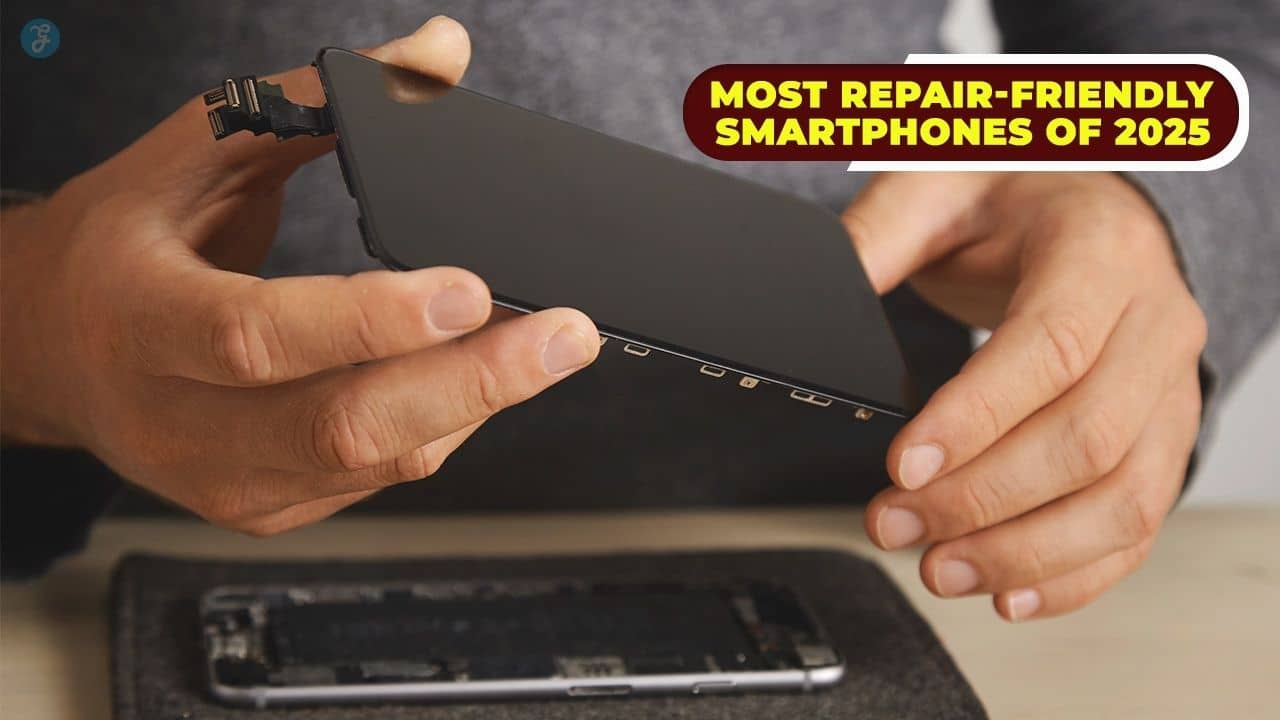Relationship conflict is inevitable due to our different wants, needs, and perspectives. While disagreements and arguments can be frustrating and emotionally draining, they also offer opportunities for growth and more profound connections if handled appropriately.
Learning to repair after a conflict is crucial for maintaining a healthy relationship. This involves calming down, communicating openly and honestly, listening actively, and finding practical solutions.
Healthy conflict resolution strategies can strengthen your bond and ensure that conflicts lead to positive outcomes rather than lasting damage. This article explores seven practical steps to help you navigate and repair after a conflict, fostering a more resilient and understanding relationship.
1. Take and Give Some Time
Immediately after or during a fight, taking an intentional timeout is crucial. Trying to resolve an argument when emotions are running high is risky and often leads to further damage. Step away momentarily to give each other breathing room.
Simple actions like getting a glass of water or practicing calming breathing exercises can help you gather your thoughts and return to a neutral state. Some couples find it helpful to have a plan for arguments, such as agreeing that it’s okay to leave a heated situation to prevent escalation.
Scheduling time a few days later to revisit the conversation when emotions have cooled can also be effective. The key is to wait until both parties are calm and ready to address the issue objectively.
This approach prevents saying things in the heat of the moment that you might later regret and allows for a more thoughtful and respectful conversation. By taking this time, both partners can reflect on the issue without the haze of intense emotions, paving the way for a more constructive dialogue later on.
2. Extend an Olive Branch
After cooling down, try not to hang on to feelings of anger and hurt. Holding onto these feelings will only cause more suffering and risk further harm to your relationship. Consider offering an apology or an “olive branch.”
Being the first to apologize doesn’t mean taking sole responsibility for the argument; instead, it acknowledges that both parties were hurt and are willing to heal. You can extend the olive branch with a verbal apology, a physical gesture like a hug, or a small, encouraging invitation to talk, such as offering your partner their favorite snack.
This gesture can intensify tension and create a more productive recovery conversation. The goal is to show that you care about the relationship and are committed to making things right, fostering a sense of unity and cooperation.
Apologizing also demonstrates maturity and a willingness to put the relationship above individual pride, which can encourage your partner to do the same, leading to a faster resolution.
3. Listen Actively to Your Partner’s Perspective
Often, in the heat of an argument, we focus so much on getting our point across that we forget to consider the other person’s side. Once both parties are more rational, it’s time to listen to what your partner has to say.
Show them that you hear them by practicing reflective listening. Try repeating what you listen to them say back to them. Even a simple statement like, “It sounds like you felt hurt when I spoke over you,” can be validating.
Acknowledge their pain, even if you disagree with their perspective, with statements like, “I’m sorry I made you feel this way.” Active listening promotes bonding, as everyone feels heard. This approach helps understand each other’s viewpoints and demonstrates empathy and compassion, vital for rebuilding trust and connection.
Listening actively allows your partner to feel valued and respected, reducing the likelihood of defensive reactions and opening the door to more effective communication.
4. Share Your Side Without Pointing Fingers
When it’s your turn to share your perspective, avoid focusing on blame. Neutrally present your worries. Instead of starting statements with “you always,” which implies blame, use “I” statements to express your feelings without triggering a defensive reaction.
For example, instead of saying, “You always leave the kitchen a mess,” try, “I’ve had a stressful week and would love to come home to a clean kitchen. Would you mind putting the dishes in the dishwasher?” This approach reduces the blame game and fosters a more constructive dialogue.
Sharing your feelings and needs openly, without accusing or blaming, creates a safer space for honest communication and problem-solving. This technique helps to prevent the escalation of conflict and encourages both parties to focus on resolving the issue rather than defending their actions.
By expressing your feelings and needs clearly, you can help your partner understand your perspective without feeling attacked, which is crucial for finding a mutually acceptable solution.
5. Return to the Root of the Issue
Once both parties have calmed down, addressing the issue’s root is essential. What was going on that made one or both of you so heated? For instance, a fight about dishes might be an underlying resentment over feeling like you carry a disproportionate share of the housework.
Identifying and addressing the underlying issue prevents the same argument from escalating again. You’ll likely reach a solution or middle ground faster when both parties are rational and calm.
By digging deeper into the natural causes of conflict, you can address and resolve the core issues, leading to more meaningful and lasting solutions. Understanding the root cause of disputes helps prevent future disagreements and strengthens the foundation of your relationship by addressing the underlying issues that trigger conflicts.
6. Work Together to Find a Practical Solution
After airing your respective worries and ensuring both parties feel heard, work together towards finding a practical solution. Take the issue of jealousy, for example. If you feel insecure in your relationship, you may recognize controlling behavior patterns in yourself.
Addressing these patterns and showing extra affection in situations that trigger jealousy can help. Communicating and working together with a team mentality can loosen the grip of insecurity.
Small gestures and open communication can significantly impact your relationship’s dynamics. Collaborating on solutions fosters a sense of partnership and mutual support, reinforcing the strength of your relationship.
Working together to find practical solutions involves setting mutual goals and agreeing on actions that both partners can commit to, which helps build trust and cooperation.
7. Consider Couples Counseling if Needed
Consider couples counseling if you and your partner struggle to find mutually acceptable solutions or have trouble implementing them. A counselor can help you understand each other’s thoughts, feelings, needs, and attachment styles.
They provide tools to identify how you push each other’s buttons and how to end conflicts healthily. Whether dealing with infidelity, financial concerns, or other issues, couples counselors offer specialized training to moderate between partners and maintain a neutral stance while helping you grow your bond.
Professional guidance can provide new insights and strategies to overcome persistent challenges and improve your relationship’s health and happiness.
Seeking professional help shows a commitment to the relationship and a willingness to work through complex issues with the guidance of an expert, which can be instrumental in achieving long-term solutions and improvements.
8. Stress Management
Managing stress is vital for handling conflicts healthily. High stress levels can exacerbate conflicts and make it harder to communicate effectively. Engage in stress-reducing activities such as exercise, meditation, or hobbies that help you relax.
Practicing stress management techniques can help you approach conflicts with a clearer mind and a calmer demeanor. Additionally, understanding and sharing your stress triggers with your partner can help them be more supportive during tense times.
Reducing stress in your daily life benefits your well-being and creates a more favorable environment for your relationship to thrive.
Stress management helps maintain emotional balance and prevents minor issues from escalating into major conflicts, contributing to a healthier relationship dynamic.
9. Honest Communication
Honest communication is the cornerstone of resolving conflicts and building a solid relationship. Being open and truthful about your feelings, needs, and concerns fosters trust and understanding.
Avoid hiding your emotions or bottling up your feelings, leading to resentment and further conflicts. Practice expressing yourself clearly and calmly, using “I” statements to convey your perspective without blaming your partner.
Honest communication also involves being receptive to your partner’s feelings and attitudes, even when they differ. Building a foundation of honesty ensures that both partners feel valued and respected, creating a more resilient and supportive relationship.
Honest communication encourages transparency and builds trust, making resolving conflicts easier and strengthening the bond between partners.
10. Being a Good Listener
Being a good listener is crucial in repairing relationships after conflicts. Active listening involves giving full attention to your partner, making eye contact, and avoiding interruptions. Show empathy by acknowledging their feelings and validating their experiences.
Reflective listening can be particularly effective when you repeat what you heard to ensure understanding. Listening attentively fosters a sense of being heard and respected, which can defuse tension and promote healing.
Demonstrating that you value your partner’s words and emotions helps build trust and opens the door for more effective communication and problem-solving.
Good listening skills enhance mutual understanding and empathy, essential for resolving conflicts and maintaining a healthy relationship.
11. Emotional Awareness
Emotional awareness is critical to understanding your reactions and those of your partner. Recognize your emotional triggers and how they influence your behavior during conflicts. By being aware of your emotions, you can better manage them and respond more constructively.
Emotional awareness also involves recognizing and validating your partner’s emotions. This understanding can lead to more empathetic interactions and a deeper connection.
Developing emotional intelligence allows both partners to navigate conflicts with greater compassion and sensitivity, strengthening the overall emotional bond in the relationship. Emotional awareness helps recognize and address the underlying emotions contributing to conflicts, facilitating more effective resolution and understanding.
12. Stay Away from the Blame Game
Blaming each other during conflicts can escalate tensions and hinder resolution. Focus on the issue at hand rather than pointing fingers. Use “I” statements to express your feelings and needs without assigning blame.
For example, instead of saying, “You never listen to me,” try, “I feel unheard when I’m interrupted.” This approach encourages a more collaborative and less defensive dialogue, paving the way for a constructive resolution.
Avoiding the blame game helps maintain respect and cooperation, making finding solutions that work for both partners easier. Staying away from blame encourages a more positive and
A solution-focused conflict resolution approach fosters a healthier and more supportive relationship dynamic.
13. Own the Responsibility
Taking responsibility for your actions and their impact on your partner is crucial for repairing relationships. Acknowledge your role in the conflict and apologize sincerely for any hurt caused.
Taking responsibility doesn’t mean taking all the blame but recognizing how your behavior contributed to the situation. This accountability can foster trust and demonstrate your commitment to the relationship.
It also encourages your partner to take responsibility for their actions, creating a balanced and respectful dynamic. Owning your part in the conflict shows maturity and a willingness to work towards a healthier relationship.
Taking responsibility helps build trust and respect, essential for resolving disputes and strengthening the relationship.
14. Humor Can Work Wonders
Humor can be a powerful tool for diffusing tension and bridging gaps after a conflict. A well-timed joke or light-hearted comment can break the ice and help both partners relax. However, use humor carefully to ensure it doesn’t come off as dismissive or minimizing the issue.
When used appropriately, humor can create a positive atmosphere and make it easier to reconnect with your partner. Shared laughter can reinforce your bond and remind you of the joy in your relationship.
Humor can serve as a reminder not to take conflicts too seriously and to focus on the love and connection you share. Using humor appropriately helps ease tension and create a more positive and relaxed environment for conflict resolution.
Takeaway
Healing your relationship following an argument takes time, persistence, and patience. By communicating openly, listening actively, managing stress, and taking responsibility, you can work through conflicts and emerge more robust as a couple.
Remember, it’s normal for partners to fight at times, but it’s equally important to recognize when the pattern is becoming unhealthy and seek help from a professional if needed.
A couples counselor can provide valuable insights and tools to help you navigate conflicts and strengthen your relationship. Embrace these strategies to turn conflicts into opportunities for growth and deeper connection.
Committing to healthy conflict resolution can build a more resilient, understanding, and loving relationship capable of weathering any storm.









































